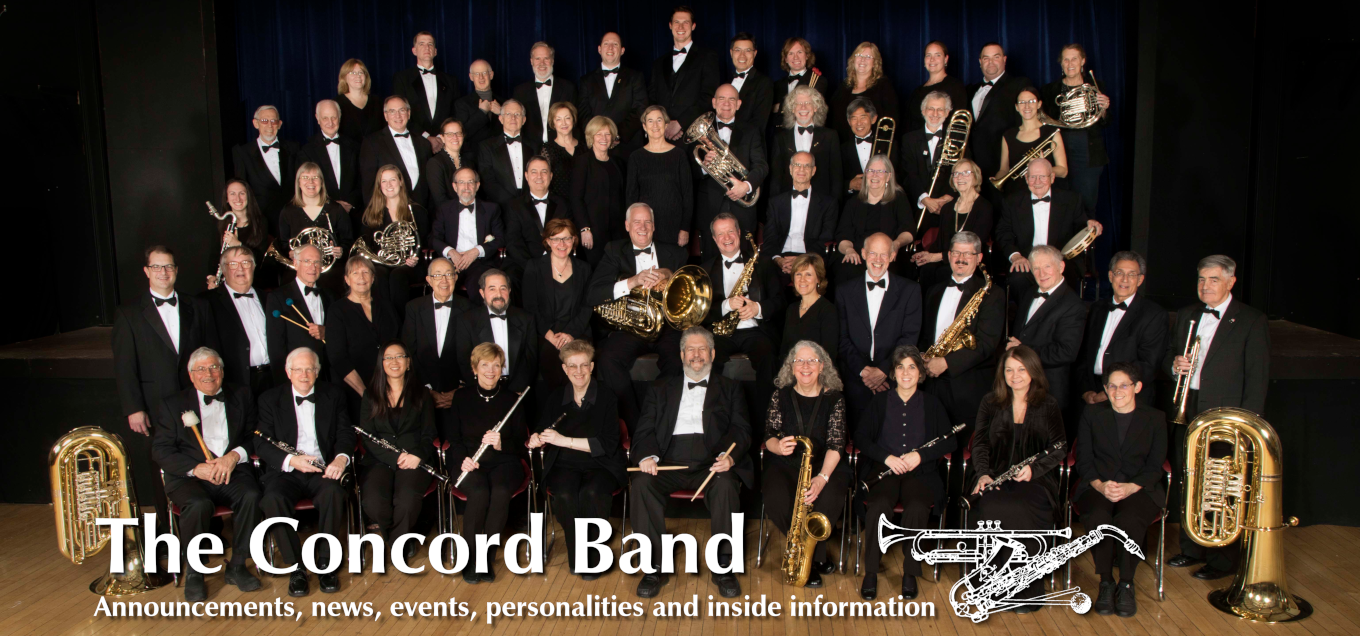Concord Band Fall Concert
October 21, 2017Review by Gretchen C. D’Andrea
Music Teacher, Whitin Elementary School
Concord Band’s Songs and Dances was a musical banquet of riches. Maestro James O’Dell, the wind ensemble’s director, confidently adapted to the demands of a stylistically ambitious program. The musicians were excellent. It’s a shame all seats weren’t filled.
 |
| John Rabinowitz alto saxophone |
Latham’s Court Festival, well suited to the acoustics of Concord’s 51 Walden, was a modern take on antiphonal Renaissance music, with conversations between brass and woodwinds. A tart little piccolo solo danced. Dynamic changes were difficult then, but no problem for today’s instruments.
In an arrangement of Debussy’s The Girl with the Flaxen Hair, expressive saxophone soloist, John Rabinowitz, played beautifully. After the ensemble entered, the tempo moved too quickly. Delicious crescendos needed more time to develop, and felt overwhelming in the space. Nonetheless, Debussy’s unique musical tapestry was a treat.
Gilmore’s intriguing Five Folk Songs involve characters ‘dancing’ to the tunes of various constructs of society; war, the cotton industry, villagers, beauty and music. This selection was the evening’s highlight; perfect for this ensemble.
 |
Alyssa Becker
mezzo-soprano
|
Alyssa Becker’s smooth mezzo-soprano coaxed lyric to life. Becker’s spinning tone, lovely on sustained notes, displayed excellent control in a hummed coda on "All the Pretty Little Horses". Use of blues in descending melodic pattern was a striking reminder of people’s plight. Clarinet solos were clean, supple; akin to vocals; oboe incandescent. A triangle sparkled brightly. Though flutes were together, "Mrs. McGrath"’s cheerful intro lacked cohesion and dragged slightly in places, yet ironic juxtaposition of text and tune was evident. At its conclusion, a slower version of the theme might better mirror the song’s mood change. "El Burro," a plaintive flute solo on unique ebony instrument was lovely.
Superfluous Havendance was possessed of frenetic, exciting charm.
Programmed last, Cajun Folk Songs was the band’s ‘Heartbreak Hill’. A solo saxophone sang true, and gorgeous themes emerged, but concentration faded, and minor intonation issues resulted. The low brass section provided anchors; centering pitch.
Cantus was entrancing-from wind chime opening to resonant conclusion. Shimmery chord changes lent an otherworldly feel; ocean background track provided a gentle wash of sound. Large moments did not overwhelm, and a sense of peace pervaded.
Audiences never tire of Copland. Players seemed to enjoy it too, for everything was tight. The trumpet solo was crisp perfection. I wish this selection was programmed last, as a joyous bookend to the Saucedo.
This community band is a treasure, providing connections in our insular world. Stravinsky said, “I haven’t understood a bar of music in my life, but I felt it.” When ensembles that are led with care play with thought and passion, music’s artistic mission is fulfilled, and we are moved.
Gretchen C. D’Andrea holds a Masters in Arts in Teaching Degree and a Bachelor of Music Performance degree in flute. Over many years, Gretchen has produced and directed musicals in both public and private school settings. Currently, Gretchen directs band and chorus, and teaches general music in Uxbridge, MA. She plays flute in the East Woodstock Community Band and loves to read in her spare time.

